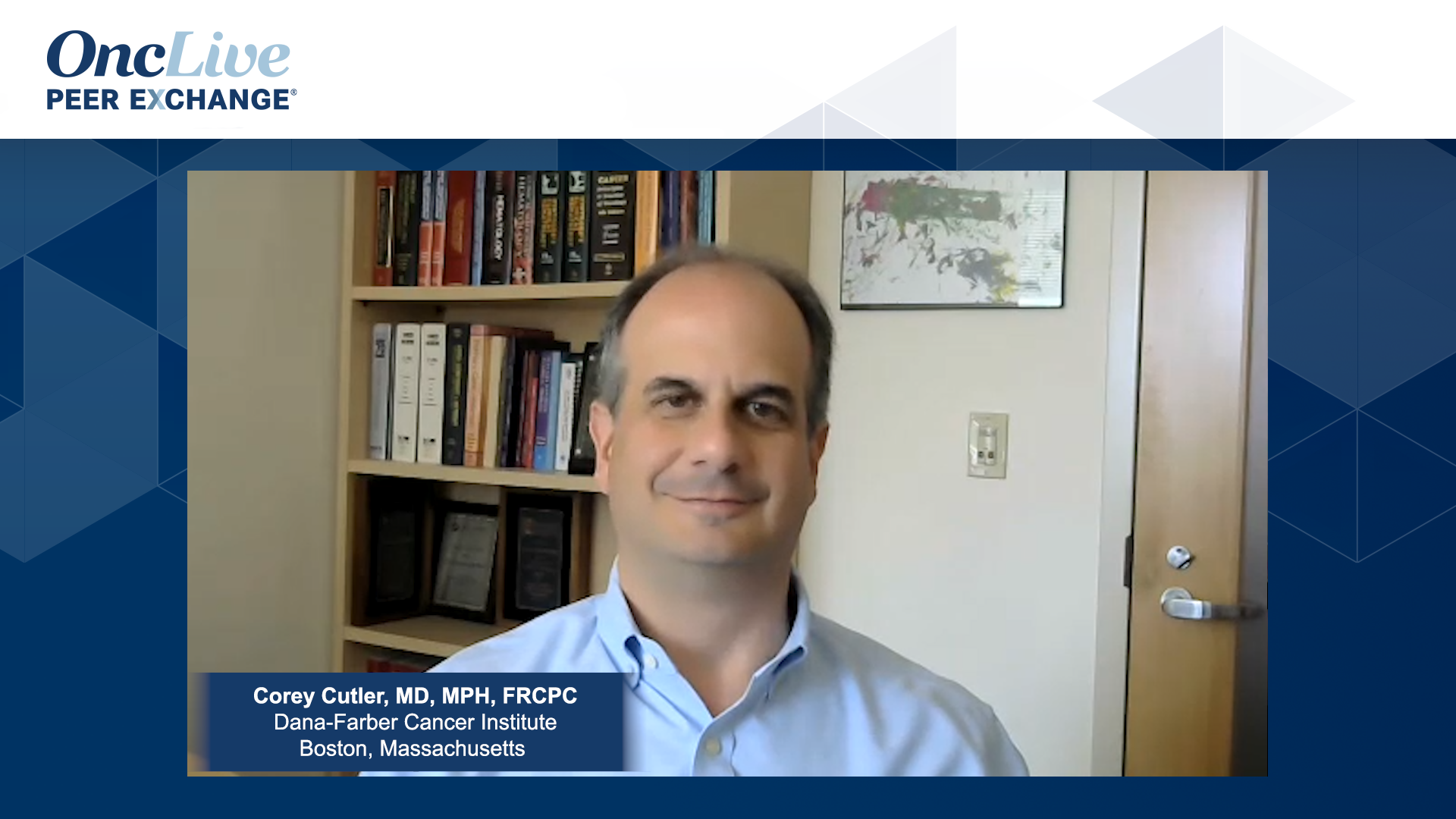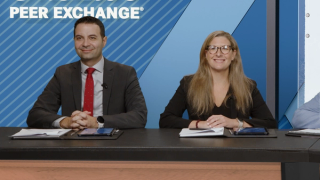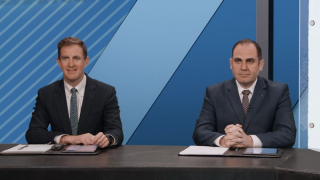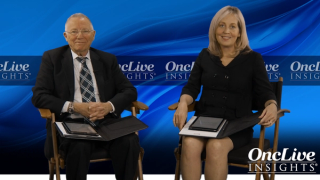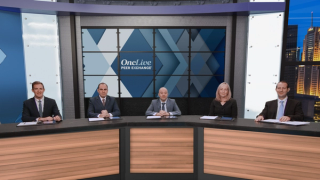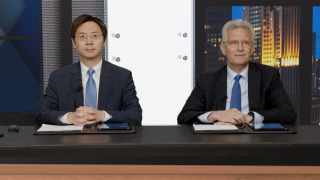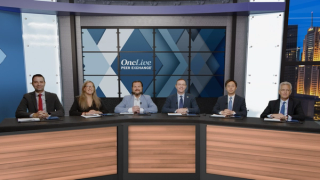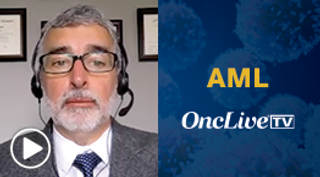
Hematologic Oncology
Latest News


Daiichi Sankyo Submits sNDA for Quizartinib in Newly Diagnosed FLT3-ITD+ AML in Japan

Plinabulin Combo Shows Potential Reduction in Neutropenia Burden in Patients With Myeloma Who Underwent AHCT
Latest Videos

CME Content
More News

Ciltacabtagene autoleucel elicited high rates of minimal residual disease negativity in patients with heavily pretreated multiple myeloma who received prior treatment with a BCMA-targeted therapy.

The addition of daratumumab to lenalidomide, bortezomib, and dexamethasone (RVd) induction and consolidation treatment and lenalidomide maintenance therapy (D-RVd/D-R) resulted in high minimal residual disease rates and prolonged progression-free survival in patients with transplant-eligible, newly diagnosed multiple myeloma.

Promising safety and efficacy results were observed with the novel bispecific antibody ABBV-383 in patients with heavily pretreated relapsed or refractory multiple myeloma.

Agents with novel mechanisms, including bispecific antibodies, immunomodulatory drugs, and antibody-drug conjugates, are displaying promising results in patients with relapsed or refractory multiple myeloma.

Extended treatment with carfilzomib plus lenalidomide and dexamethasone after autologous stem cell transplant improved progression-free survival over standard lenalidomide maintenance in patients with multiple myeloma.

The triplet regimen of lenalidomide, bortezomib, and dexamethasone plus autologous stem cell transplantation and lenalidomide maintenance therapy significantly improved progression-free survival compared with RVd alone in patients with newly diagnosed multiple myeloma, with notable benefit observed in those with high-risk cytogenetics.

The FDA has approved pemigatinib (Pemazyre) for the treatment of adults with relapsed or refractory myeloid/lymphoid neoplasms and FGFR1 rearrangement.
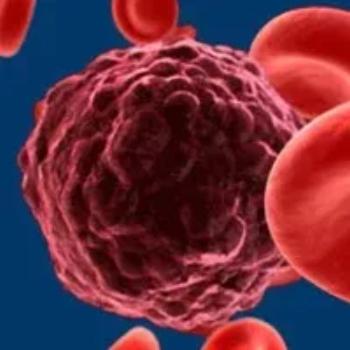
Patients with multiple myeloma can mitigate the common oral and dermatologic toxicities associated with talquetamab with early intervention tactics.
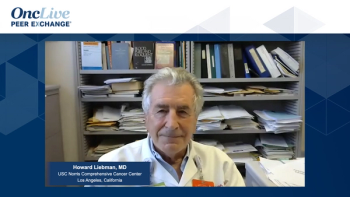
Before closing out their discussion on novel treatment approaches in ITP, experts review data behind FcR-, BTK-, and CD38-targeted therapies.
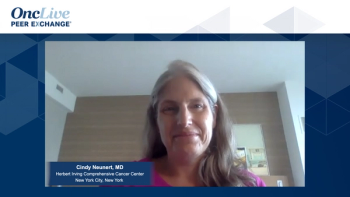
Panelists review data behind sutimlimab, a complement inhibitor being investigated in the setting of immune thrombocytopenia.

Jeff P. Sharman, MD, discusses the meaning of the long-term follow-up data from ELEVATE-TN, the efficacy of acalabrutinib regimens in patients with treatment-naïve chronic lymphocytic leukemia with deletion 17p or TP53 mutations, and factors to consider when adding obinutuzumab to acalabrutinib.

The FDA has approved ibrutinib (Imbruvica) for pediatric patients aged 1 year or older with chronic graft versus host disease following failure of 1 or more lines of systemic therapy.

The European Commission has granted conditional marketing authorization to teclistamab for use as a single agent in adult patients with relapsed and refractory multiple myeloma who have received at least 3 prior therapies, including an immunomodulatory drug, a proteasome inhibitor, and an anti-CD38 antibody.

Liquid biopsy using targeted next-generation sequencing for early diagnosis and monitoring of patients with myeloid neoplasms is effective and detects chromosomal structural abnormalities.

Luspatercept, a first-in-class erythroidmaturation agent, induced high clinical activity in patients with transfusion-dependent, lower-risk myelodysplastic syndromes and ring sideroblasts who were relapsed/refractory to erythropoietin, according to findings from the phase 2 PACE-MDS study.

The FDA has placed a full clinical hold on a phase 1 dose escalation trial investigating the BRG1/BRM inhibitor FHD-286 in patients with relapsed/refractory acute myeloid leukemia or myelodysplastic syndrome.

The European Medicines Agency has validated the marketing authorization application for quizartinib in combination with standard cytarabine and anthracycline induction and standard cytarabine consolidation chemotherapy, and as continuation monotherapy following consolidation, for the treatment of adult patients with newly diagnosed FLT3-ITD–mutated acute myeloid leukemia.
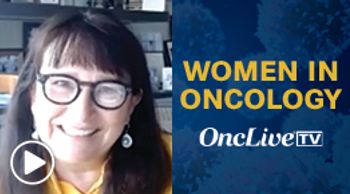
Selina M. Luger, MD, FRCPC; Gail J. Roboz, MD; and Wendy Stock, MD, discuss how they turned their leukemia career “lemons” into “lemonade.”
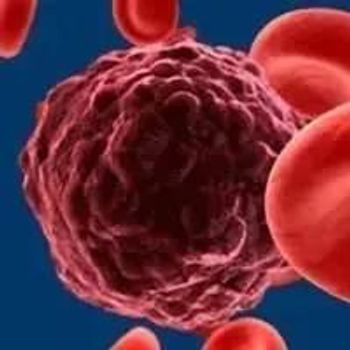
The European Medicines Agency has accepted the marketing authorization application for the oral fixed-dose combination of decitabine and cedazuridine for the frontline treatment of adults with acute myeloid leukemia who are not candidates for standard induction chemotherapy.

Relmacabtagene autoleucel elicited durable responses and a high overall survival rate in Chinese patients with relapsed/refractory large B-cell lymphoma, according to 2-year follow-up data from the phase 2 RELIANCE trial.
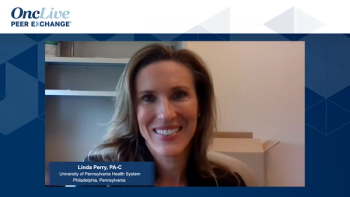
Shifting their focus to acute graft versus host disease, panelists reflect on evolving treatment strategies and novel therapeutics.
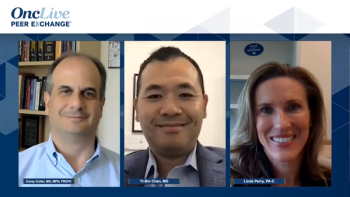
Expert panelists share their perspectives on ongoing treatment evolutions in the setting of chronic graft versus host disease.

In recent years, cellular immune therapies such as chimeric antigen receptor T-cell therapy have significantly improved response rates for various hematological malignancies.

Selina M. Luger, MD, FRCPC; Gail J. Roboz, MD; and Wendy Stock, MD, discuss what motivated them to continue working toward improvements in the leukemia field, even when outcomes were dismal and treatment options were scarce.

Matthew J. Frigault, MD, discusses the findings from a phase 1 trial investigating the safety and efficacy of CART-ddBCMA in patients with multiple myeloma in whom all previous lines of treatment had failed and shares additional research opportunities for the CAR T-cell therapy.



